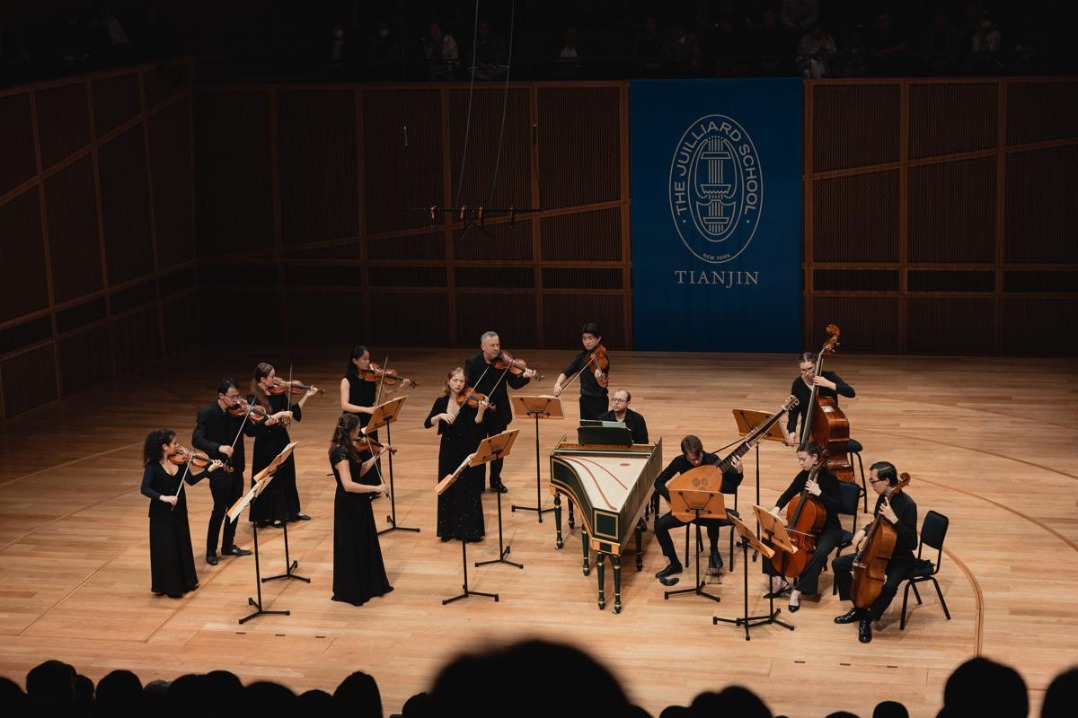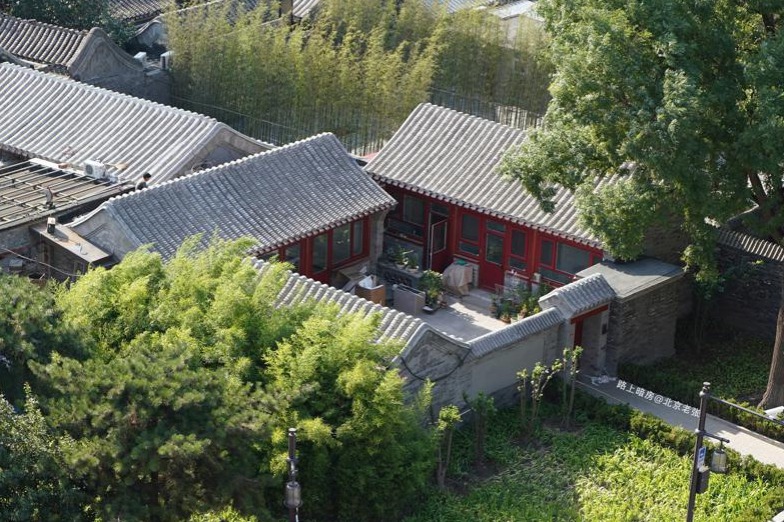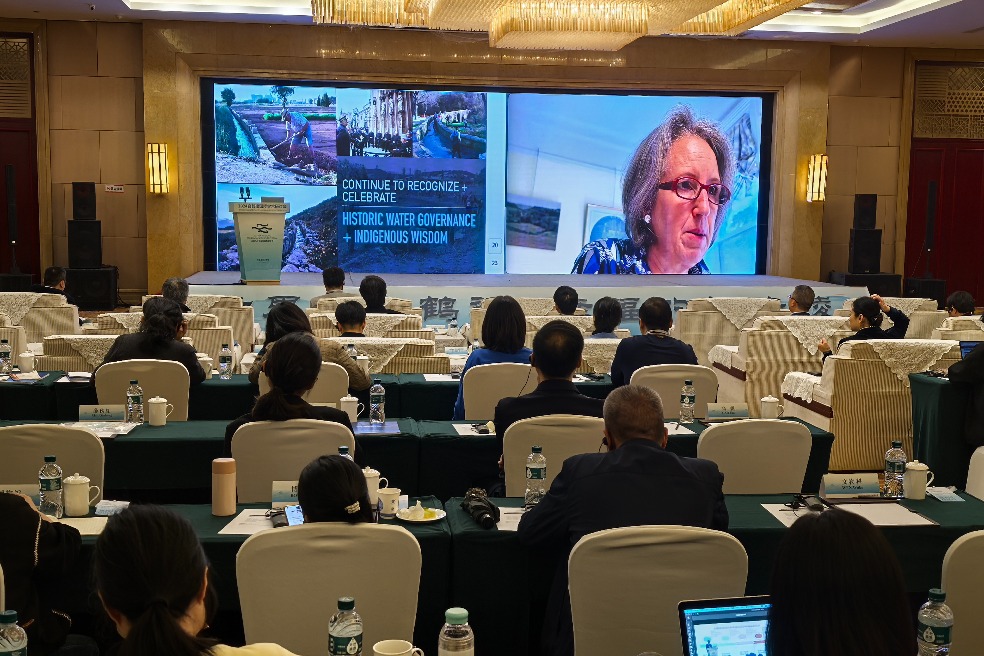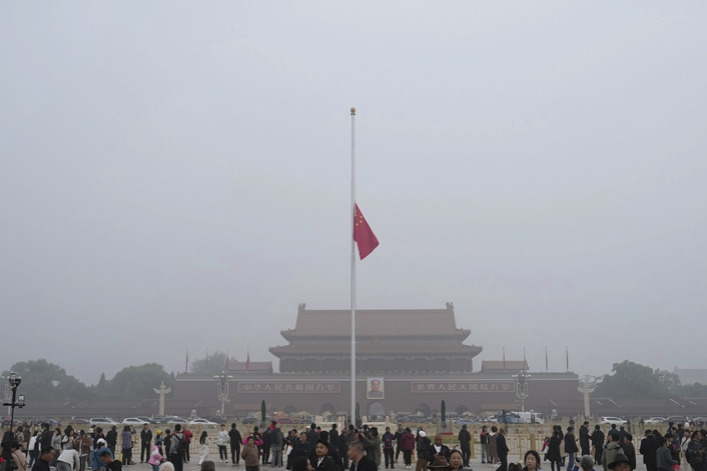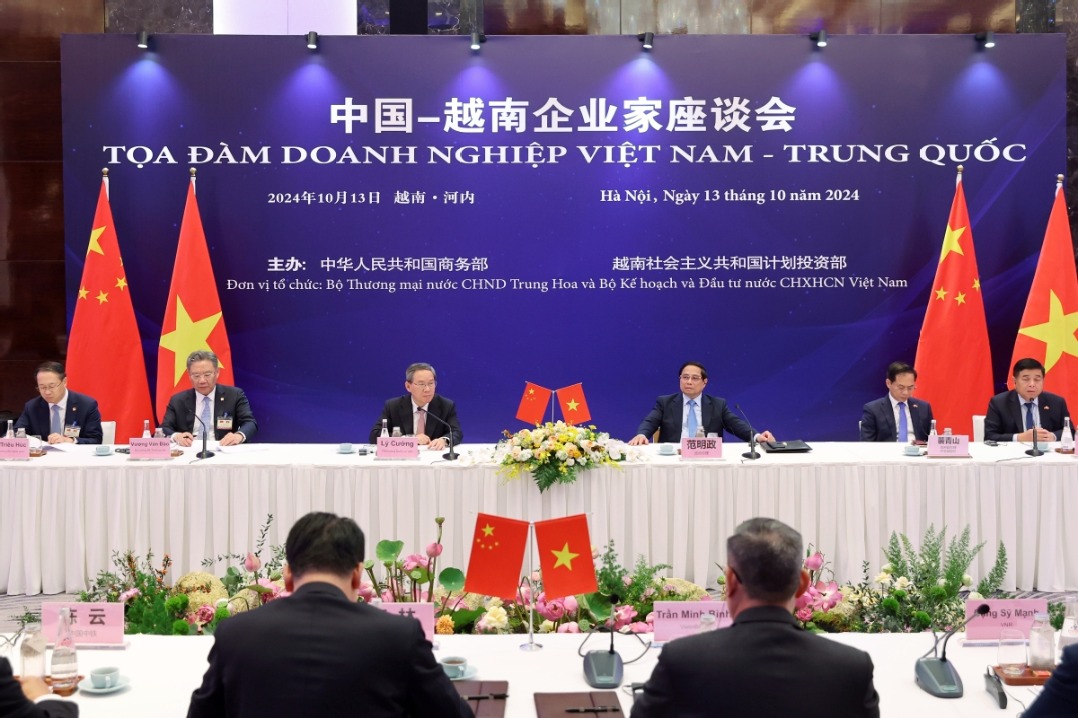Electronic money-spinners
Esports is becoming big business in Hong Kong and worldwide. Industry players and experts have called for greater efforts and support from the SAR government to drive and commercialize the sector as part of the city's post-pandemic economic recovery. Liu Yifan reports in Hong Kong.


The time has long since passed when electronic games were dismissed as worthless and a waste of time.
Electronic sports - professional-level, competitive multiplayer video gaming - has been gaining traction globally in recent years and has gained traction as a medal sport with a comprehensive value chain.
Chung Pei-chi, an associate professor at the Chinese University of Hong Kong's Department of Cultural and Religious Studies, points to the increasing popularity of online games since the late 1990s that has brought about a significant shift in electronic gaming. Esports is no longer restricted to playing on game consoles among companions at home. Instead, the internet has become the platform of a supportive community of online "friends" to share their gaming strategies and exchange views.
The introduction of multiplayer online games has led to a massive surge in their popularity, including the United States' World of Warcraft and South Korea's highly popular PlayerUnknown's Battlegrounds series.
With technological advancements, esports has seen rapid growth in various regions, emerging as a new sector with significant economic potential. In March, market research company the Brainy Insights estimated that the $2.9 billionesports marketwill reach $28.3 billion by 2033.
The industry could be an important driver of employment, economic growth and diversification, as well as development of the technology, cultural and tourism sectors in Hong Kong, says lawmaker William Wong Kam-fai.
Commercializing esports in the special administrative region would be a boost for businesses involved in sports clubs, ticket sales, electronic products, sponsorships and other supporting services. It could also create jobs for players, coaches, anchors, therapists and event organizers, says Wong, who is also a national political adviser and an associate dean of the Engineering Faculty at the Chinese University of Hong Kong.
What was particularly music to the ears of the SAR's esports sector was the Hong Kong team's clinching the silver medal in the video game Dream Three Kingdoms 2 at last year's 19th Asian Games in Hangzhou. It was the first time esports had been included in the tournament as a medal event.
Eric Yeung Chuen-sing, founding president of the Esports Association Hong Kong, says the city has young individuals who are eager to pursue a career in esports, and it's essential to expand and activate the market to attract them to the industry.
Yeung is a lecturer in sports and esports management at Hong Kong Metropolitan University, with courses in esports business planning, as well as esports broadcasting and hosting. The esports course is highly popular, with over 160 students choosing it as an elective.
The academic-cum-businessman is also CEO and co-founder of Skyzer VC Group, and he has investments in video-game and esports companies. But he warns that Hong Kong has to deal with the challenges in sourcing professionals; insufficient funding; and organizing major competitions.
Local universities offer bachelor's programs in fields like multimedia technology, information technology, computer science, and software engineering, as well as diploma programs related to game development. However, there's a lack of degree programs specifically focused on game development and esports.
In 2018, the HKSAR government pledged to invest HK$100 million ($12.8 million) in Cyberport - a technology center in Hong Kong Island's Southern District - to foster the growth of the local esports sector. Half the funds were allocated to transforming the Cyberport Arcade into a local hub for esports and digital entertainment, while the remainder would be used to support the advancement of esports technology, industry development, and cultivating talent.
With funding and government support, the SAR organizes 100 to 200 esports events annually. Many companies and venues were established, with plenty of options for organizing competitions.
However, because of the 2019 social unrest and the COVID-19 pandemic, many events could not be held, Yeung says. After the closure of esports venues, small-scale tournaments could only take place in internet cafes, while events with just 400 to 500 spectators could be staged at Cyberport, sports stadiums or community halls.
The funding program ended abruptly last year, leaving the sector's prospects uncertain and reducing opportunities for players to take part in competitions.
Yeung is pleased that Hong Kong has unique advantages with facilities, such as AsiaWorld-Expo, the Hong Kong Coliseum and the Hong Kong Convention and Exhibition Centre, making the city suitable for hosting large-scale international competitions.
These venues are equipped with reliable power, a network and water supply, and are supported by comprehensive tourism infrastructure. Additionally, the city offers convenience for international participants with easy accessibility.
Leveraging potential
To scale up the local esports sector, Yeung suggests integrating with the Chinese mainland's professional league. He cites the League of Legends - a multiplayer online battle arena game that has teams from around the world compete in different regions based on game servers; however, the mainland and Hong Kong teams do not play in the same league.
The SAR government can take the lead in discussing with mainland video-game companies and cultural departments to help Hong Kong join the mainland competition zone to provide more opportunities for the city's esports players.
South Korea has been at the forefront of esports development, implementing targeted policies to foster its growth since the early 2000s.
Following the Asian financial crisis in 1997, there was a rapid emergence of cybercafes, referred to as "PC rooms", across South Korea. This was primarily fueled by unemployed individuals venturing into independent entrepreneurship with government-backed financial support. These PC rooms became popular venues for hosting small-scale gaming competitions, ultimately leading to the rise of esports. Recognizing the growth potential of the industry, the Korea eSports Association was established in 2000 with the approval of South Korea's Ministry of Culture, Sports and Tourism.
With it comes a vast array of measures to boost the expansion of esports facilities, professionalization of esports players, and popularization of esports events, and promotion as a tourism feature.
South Korea - one of the most developed esports markets - saw its cultural industry exports amount reach $12.4 billion in 2021, with the video-game industry ranking first with about $8.7 billion, accounting for 69.6 percent of the total, according to data from the Ministry of Culture, Sports and Tourism.
Creating esports ecosystem
Wong says more needs to be done to help Hong Kong realize the full potential of esports. The government should first put the sector into the cultural and sports category to quell negative public mentality about video games.
A dedicated department should be set up under the Culture, Sports and Tourism Bureau to lead and coordinate the overall development of the video-game industry, he says.
Measures should include formulating a five-year development plan, encouraging wider adoption of technological applications, and creating synergy between the video-game sector and other creative and cultural businesses. Efforts to boost the industry need to be matched by sustaining funding programs to support video-game companies, esports clubs and event organizations, says Wong, adding that more esports activities should be organized in Hong Kong in line with the government's drive to rev up the post-pandemic economic recovery by staging a vast array of mega events.
Hong Kong Chief Executive John Lee Ka-chiu recently announced plans to hold more than 100 events in the latter half of the year, including entertainment expos and fashion weeks. They're expected to generate HK$7.2 billion in consumer spending and bring an HK$4.3 billion in economic value to the city.
"Considering the rapid growth of esports, it's wise to hold international esports events in Hong Kong to attract tourists and promote the development of the tourism business," Wong says.
Greater efforts should also be made to integrate games with education in a broader sense, says Clive Wan, co-founder of Ask Idea - a science, technology, engineering, arts, and mathematics (STEAM) education brand.
He says the Education Bureau can support robotic-game competitions and not be intimidated by the concept of combat, adding it's not about promoting violence but rather attracting students to learn STEAM-related skills, such as programming and mechanics.
Through participation, students can gradually develop and various innovative products. The field of robotics offers vast opportunities, such as the use of robots by petroleum companies to inspect pipelines.
Citing robotic games in other regions, Wan says these competitions have nurtured teams that have ventured into aerospace and Formula 1 engineering by creating a favorable learning atmosphere for STEAM education.
Teachers need not worry about acquiring a vast amount of specialized knowledge. By attending training and engaging in exchanges, they can understand what students can learn, while leaving other aspects to be handled by commercial institutions, he says.

















